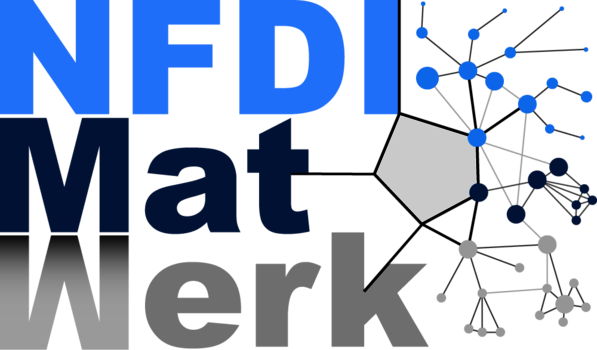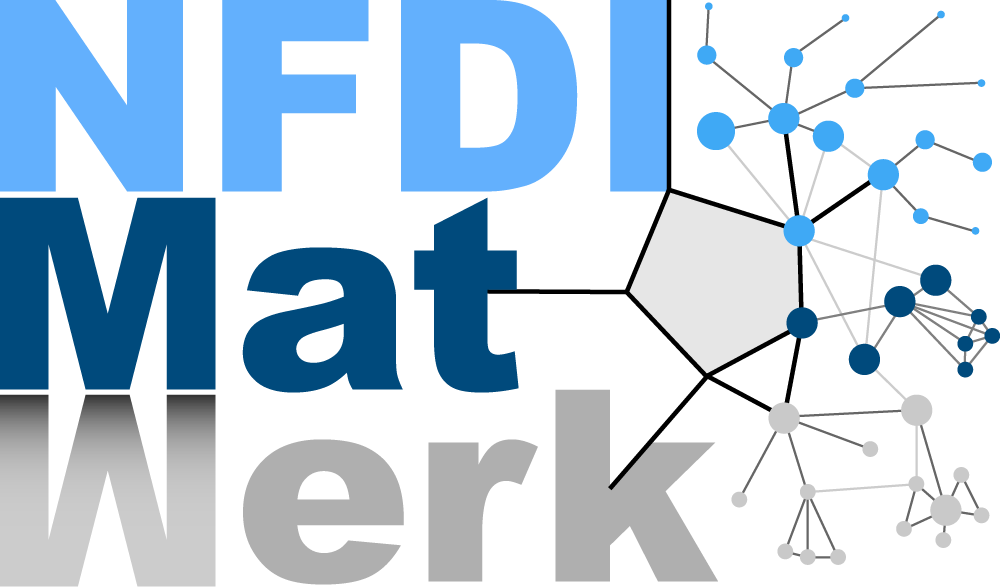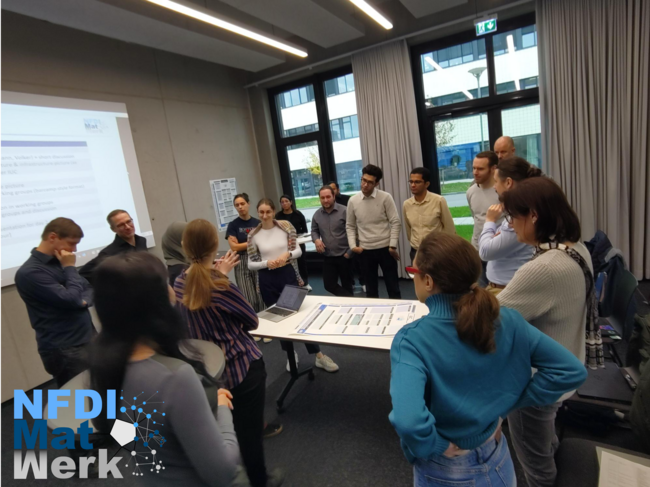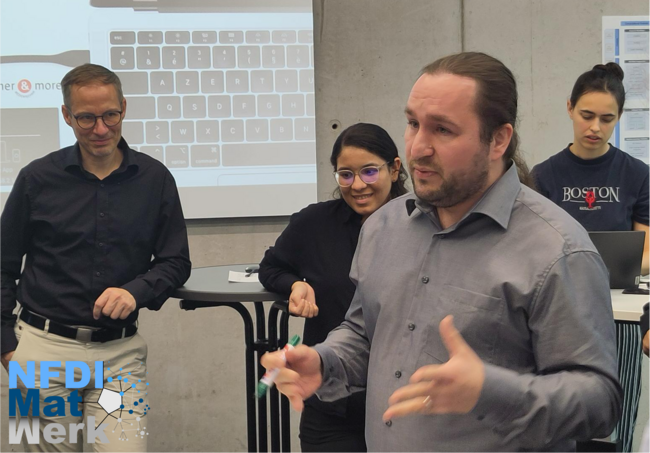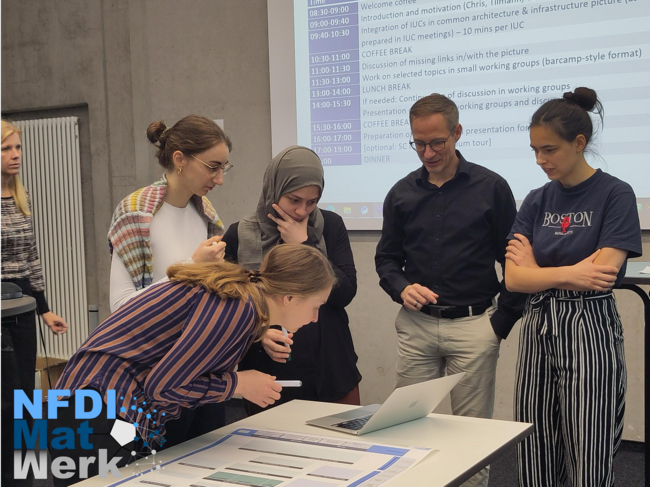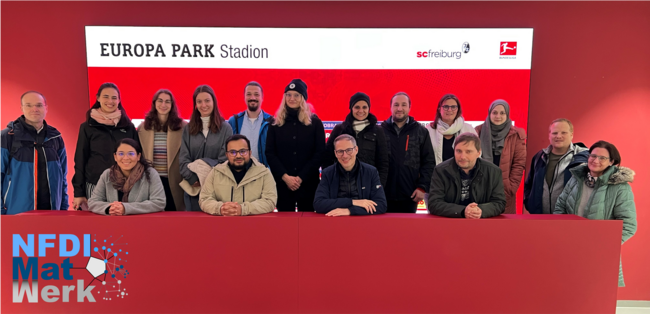Day 1: Operational Work Level
On the first day, participants from the operational level gathered around a key theme: NFDI-MatWerk is more than just the sum of its parts. The discussions aimed to enhance the interconnectedness of each solution within the architecture, examining how tools in each Infrastructure Use Case (IUC) could link and support one another. Participants identified gaps and missing linkages, focusing on areas where current tools could be combined or extended to create a more cohesive infrastructure.
Each IUC's insights were then consolidated, revealing critical architectural gaps and areas lacking integration. In small-group sessions, participants discussed strategic goals and potential ways to reactivate inactive IUCs to add more value. Strengthening collaboration with other NFDI consortia was also a significant topic, envisioning a broader network to foster knowledge-sharing.
The group also proposed developing demonstrators to showcase NFDI-MatWerk’s solutions, along with creating a searchable database to make tools easily accessible to users. Defining a clear target audience for these solutions became a priority, setting a direction for future outreach and engagement.
The productive day wrapped up with a tour of SC Freiburg’s stadium and a shared dinner, giving participants a relaxed environment to unwind, reflect on the day’s progress, and build connections.
Day 2: Decision-Making with Co-Spokespersons
The second day included co-spokespersons who provided input on key issues. Outcomes and proposals from Day 1 were reviewed, with some decisions deferred to the next Lenkungskreis meeting. Key discussions included:
- Infrastructure Use Cases (IUCs) and Participant Projects (PPs): Milestone-based goals replaced fixed endpoints for IUCs, encouraging continuous development. Each IUC should have at least two active Participant Projects to ensure sustainability. A new IUC for Machine Learning (ML) was considered, contingent on available Task Area (TA) resources and PP involvement. Strategies to increase community engagement included creating interest groups for PPs.
- Interoperability and Cooperation: A node store was approved to ensure FAIR workflows, with GitHub or GitLab as potential platforms. Plans for interoperability with the NOMAD database and regular exchanges with Plattform Material Digital were also endorsed to ensure data-sharing synergy.
- Target Audience and Roll-Out Strategy: Four main sub-groups were identified within Materials Science and Engineering, primarily targeting researchers and advanced students in Germany. The group decided not to target undergraduate students directly but to support faculty with ready-to-use teaching materials to introduce research data management concepts.
The meeting concluded with a summary of these strategic decisions and next steps, including upcoming workshops and roll-out plans to demonstrate best practices and hands-on applications.
